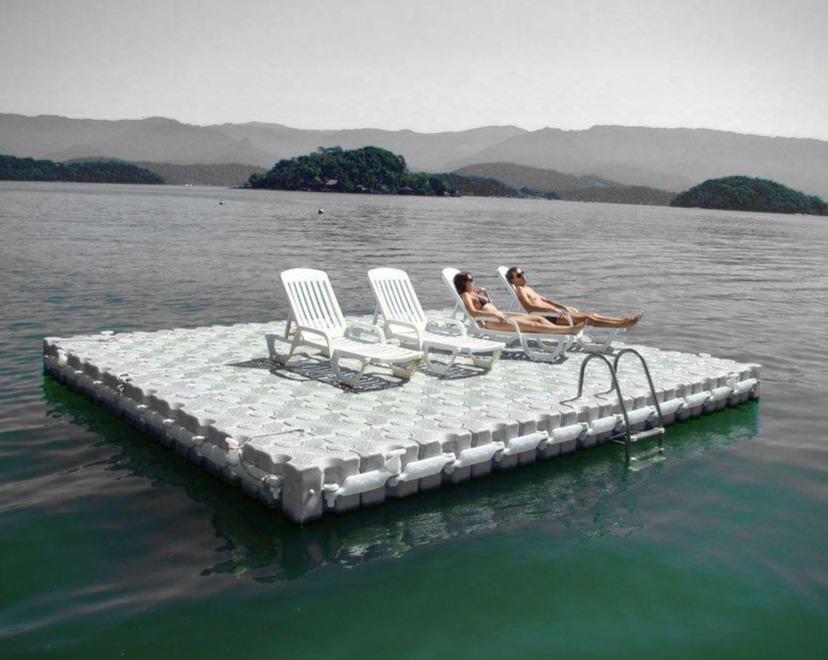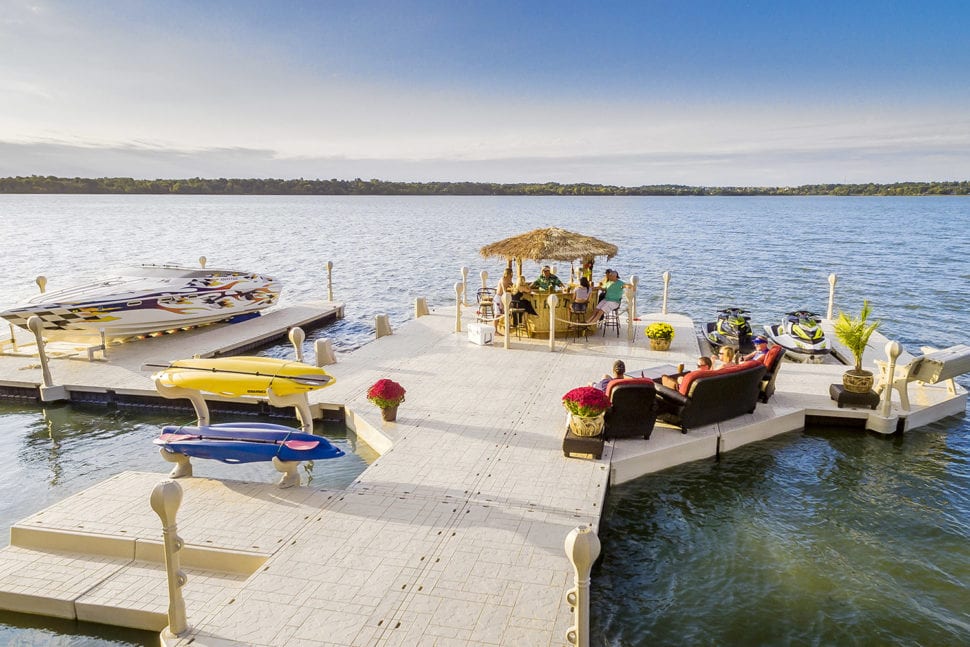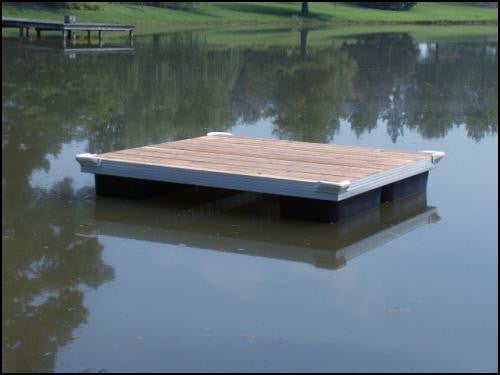The Ultimate Guide to Choosing the Ideal Floating Docks
Selecting the ideal floating dock calls for a comprehensive understanding of various aspects that influence both performance and longevity. Variables such as dock kinds, products, and vital functions significantly influence your decision-making process. Factors to consider around installment and spending plan can better complicate the option. By checking out these aspects methodically, one can guarantee an investment that not only meets prompt requirements however likewise boosts general residential or commercial property worth. As we check out these important parts, it becomes clear that the right options can cause a functional and long-term remedy tailored to your details demands.
Understanding Floating Dock Types
When selecting a floating dock, it is important to recognize the different types available, as each offers distinctive functions and applications. Floating docks mainly fall under 3 groups: modular, stationary, and pontoon docks.
Modular docks are composed of private sections that can be easily set up or reconfigured, making them excellent for transforming water levels and diverse usages, such as entertainment tasks or commercial procedures. Their flexibility allows for personalization based on certain requirements.

Pontoon docks are defined by their resilient structure, often composed of several pontoons that supply security and support. They are particularly appropriate for bigger vessels and are commonly utilized in marinas or for waterfront buildings. Understanding these kinds help in selecting one of the most ideal floating dock to satisfy details needs, making sure optimum functionality and security.
Trick Products for Resilience
Choosing the appropriate products for floating docks substantially influences their durability and durability. The most typical products consist of timber, plastic, steel, and composite products, each offering distinctive benefits and limitations.
Wood, typically preferred for its visual charm, calls for normal upkeep to hold up against moisture and degeneration. Pressure-treated lumber can enhance resistance to rot, but it may still be susceptible to bugs and weathering.

Plastic docks, constructed from high-density polyethylene (HDPE), are resistant to corrosion, UV radiation, and influence, making them a prominent choice for seaside atmospheres. Their lightweight nature additionally helps with easy setup and relocation.
Steel docks, commonly built from light weight aluminum or galvanized steel, supply remarkable toughness and toughness. They are resistant to corrosion, especially when treated, yet may call for additional insulation to avoid heat buildup in hot environments.
Composite products, integrating timber fibers and plastics, deliver the advantages of both timber and plastic, withstanding dampness and fading while requiring very little upkeep. - floating dock services
Ultimately, the option of products should line up with ecological problems, intended usage, and upkeep preferences to guarantee the floating dock continues to be functional and visually pleasing with time.
Vital Attributes to Consider
While the choice of materials is vital, considering vital functions for floating docks is similarly crucial to make certain optimal performance and user fulfillment. One vital attribute to assess is the dock's buoyancy capacity, which identifies exactly how much weight it can sustain without immersing. floating dock builder. This is important for fitting watercrafts, individual boat, and also leisure tasks
Furthermore, mobility is a considerable more factor to consider. Relying on your demands, you might desire a dock that is easy to deliver and take apart, especially if you prepare to move it seasonally. Stability is another important feature; a well-designed floating dock must lessen motion triggered by wind and water currents, offering a protected platform for customers.
Safety and security functions, such as non-slip surfaces and rounded edges, are additionally important to stop mishaps, particularly in damp problems. Additionally, consider the schedule of devices, such as ladders, bumpers, and cleats, which can enhance the capability of your dock.
Installment and Maintenance Tips
Establishing and preserving a drifting dock needs mindful planning and focus to detail to guarantee its durability and optimum performance. Begin by picking a suitable area that reduces direct exposure to strong currents and waves, which can create wear and tear. Make certain that the water depth is enough for the dock's height and that it is secured securely to avoid motion.
During installation, comply with the manufacturer's guidelines very closely, as improper assembly can endanger stability. Use high-quality materials immune to deterioration, such as aluminum or treated timber, to enhance sturdiness. Routinely check all parts, including floats, ports, and securing systems, for signs of damage or wear.
If your dock makes use of flotation tools, guarantee they remain intact and free from slits. By sticking to these installation and maintenance ideas, you can enjoy a dependable and functional floating dock for years to come.
Budgeting for Your Dock
Budgeting for your dock is a critical action that can dramatically affect your general fulfillment and investment in a waterfront residential or commercial property. Developing a clear spending plan assists you browse the various alternatives readily available and why not try here guarantees you make educated choices that line up with your economic capacities.
Begin by establishing the dimension and layout of the dock you call for, as these elements will considerably influence the expense. Floating docks can differ dramatically in cost, depending upon products, buoyancy, and features like ramps and accessories. Study various manufacturers and vendors to compare costs and comprehend the marketplace value.
In enhancement to initial prices, think about continuous expenses such as upkeep, insurance policy, and possible repairs. check Allot funds for these persisting prices to stay clear of surprises down the line. It's additionally prudent to allocate any required authorizations or examinations, which might be needed by neighborhood regulations.
Lastly, remember the potential return on investment. A well-planned dock can improve your property's worth and allure, giving a favorable monetary effect in the long term. By budgeting efficiently, you can make sure that your dock meets your demands without compromising your monetary security.
Conclusion
In conclusion, choosing the ideal floating dock demands a complete evaluation of different factors, consisting of dock types, materials, crucial features, and installment processes. Mindful factor to consider of budgetary restraints will certainly further guarantee an audio investment.

While the selection of materials is critical, considering vital functions for floating docks is just as vital to make certain optimum performance and individual fulfillment.Setting up and preserving a drifting dock calls for cautious preparation and attention to information to guarantee its longevity and optimal performance. Floating docks can differ considerably in rate, depending on products, buoyancy, and functions like ramps and accessories.In verdict, choosing the excellent floating dock requires an extensive assessment of different aspects, consisting of dock types, products, necessary features, and setup processes.